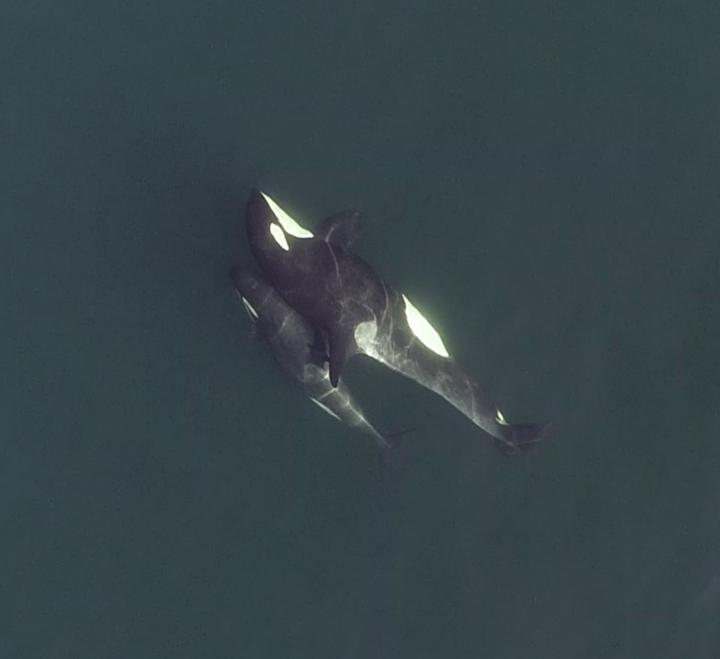Killer whales have complex social structures including close “friendships”, according to a new study that used drones to film the animals.
The findings show that killer whales spend more time interacting with certain individuals in their pod, and tend to favour those of the same sex and similar age.
The study, led by the University of Exeter and the Center for Whale Research (CWR), also found that the whales become less socially connected as they get older.
“Until now, research on killer whale social networks has relied on seeing the whales when they surface, and recording which whales are together,” said lead author Dr Michael Weiss, of the University of Exeter.
“However, because resident killer whales stay in the social groups into which they’re born, how closely related whales are seemed to be the only thing that explained their social structure.
“Looking down into the water from a drone allowed us to see details such as contact between individual whales.
“Our findings show that, even within these tight-knit groups, whales prefer to interact with specific individuals.
“It’s like when your mom takes you to a party as a kid – you didn’t choose the party, but you can still choose who to hang out with once you’re there.”
Patterns of physical contact – one of the social interactions the study measured – suggest that younger whales and females play a central social role in the group. The older the whale, the less central they became.
The new research built on more than four decades of data collected by CWR on southern resident killer whales, a critically endangered population in the Pacific Ocean.
“This study would not have been possible without the amazing work done by CWR,” said Professor Darren Croft, of Exeter’s Centre for Research in Animal Behaviour.
“By adding drones to our toolkit, we have been able to dive into the social lives of these animals as never before.
“We were amazed to see how much contact there is between whales – how tactile they are.
“In many species, including humans, physical contact tends to be a soothing, stress-relieving activity that reinforces social connection.
“We also examined occasions when whales surfaced together – as acting in unison is a sign of social ties in many species.
“We found fascinating parallels between the behaviour of whales and other mammals, and we are excited about the next stages of this research.”
###
The start of this drone project – including the purchase of one of the drones used in this study – was made possible by a crowd-funding campaign supported by members of the public, including University of Exeter alumni.
Results from the new study are based on 651 minutes of video filmed over ten days.
The research team included the universities of York and Washington, and the Institute of Biophysics, and the study was partly funded by the Natural Environment Research Council (NERC).
The study, published in the journal Proceedings of the Royal Society B, is entitled: “Age and sex influence social interactions, but not associations, within a killer whale pod.”
Media Contact
Alex Morrison
[email protected]
Related Journal Article
http://dx.





